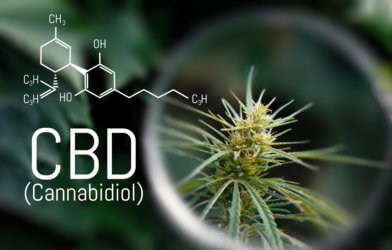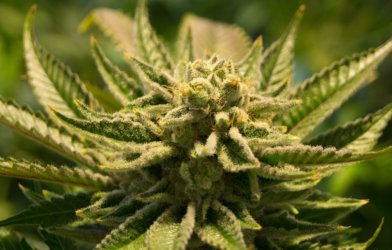🔑 Key Findings:
- Daily cannabis users have a 25% higher risk of heart attack and 42% higher risk of stroke
- A survey shows 48.2 million people over age 12 tried cannabis in 2019
- Younger users at risk for cardiovascular disease were 36% more likely to develop heart problems
DALLAS — Could normalizing marijuana use lead to heart health crisis? A dire new study has found a significant association between cannabis use and an increased risk of heart attack and stroke among adults in the United States. This comprehensive analysis, which included data from 430,000 individuals, sheds new light on the potential cardiovascular dangers of cannabis, even after accounting for tobacco use and other cardiovascular risk factors.
Cannabis, also known as marijuana, remains illegal at the federal level in the U.S., yet 24 states and Washington, D.C. have legalized its recreational use. Its popularity has soared, with the 2019 National Survey on Drug Use and Health reporting that 48.2 million people over the age of 12 used cannabis at least once that year, a significant rise from 25.8 million in 2002.
“Despite common use, little is known about the risks of cannabis use and, in particular, the cardiovascular disease risks,” says study lead study author Dr. Abra Jeffers, a data analyst at Massachusetts General Hospital in Boston, in a media release. “The perceptions of the harmfulness of smoking cannabis are decreasing, and people have not considered cannabis use dangerous to their health. However, previous research suggested that cannabis could be associated with cardiovascular disease. In addition, smoking cannabis — the predominant method of use — may pose additional risks because particulate matter is inhaled.”

Researchers analyzed survey data from the Behavioral Risk Factor Surveillance System, spanning 2016 to 2020, to investigate the link between cannabis use and cardiovascular outcomes such as heart disease, heart attack, and stroke. They discovered that any form of cannabis use was independently associated with a higher number of adverse cardiovascular issues. Notably, the risk increased with the frequency of use. Daily cannabis users had a 25-percent higher chance of experiencing a heart attack compared to non-users, while their risk of stroke was 42 percent higher.
Particularly alarming was the finding that younger adults at risk for premature cardiovascular disease showed a 36-percent higher likelihood of suffering from coronary heart disease, heart attack, and stroke due to cannabis use, regardless of tobacco product use.
“Our sample was large enough that we could investigate the association of cannabis use with cardiovascular outcomes among adults who had never used tobacco cigarettes or e-cigarettes,” explains Dr. Jeffers. “Cannabis smoke is not all that different from tobacco smoke, except for the psychoactive drug: THC vs. nicotine. Our study shows that smoking cannabis has significant cardiovascular risks, just like smoking tobacco. This is particularly important because cannabis use is increasing, and conventional tobacco use is decreasing.”
The study’s sample comprised adults between 18 and 74, with a balance between men and women and a diverse racial makeup. It revealed that nearly 90 percent of participants did not use cannabis, with only four percent identifying as daily users. Among cannabis users, smoking was the most common method of consumption.

The study is not without its limitations. The reliance on self-reported data for cardiovascular conditions and cannabis use introduces the possibility of recall bias. Moreover, the study’s cross-sectional nature means it captures data at only a single point in time, highlighting the need for future research that follows participants over time to further explore this association.
“The findings of this study have very important implications for population health and should be a call to action for all practitioners, as this study adds to the growing literature that cannabis use and cardiovascular disease may be a potentially hazardous combination,” notes Dr. Robert L. Page II, chair of the volunteer writing group for the 2020 American Heart Association Scientific Statement: Medical Marijuana, Recreational Cannabis, and Cardiovascular Health.
Dr. Page is also a professor of clinical pharmacy, medicine and physical medicine at the Skaggs School of Pharmacy and Pharmaceutical Sciences at the University of Colorado School of Medicine. Page was not directly involved in this study.
The study is published in the Journal of the American Heart Association.
You might also be interested in:




This might well be true, but people remember how we were told it would make you rape your sister, kill your grandmother, and rob the corner store — and found it caused nothing like that. So if nobody believes this latest warning who will be blamed?
Exactly … scare tactics to control people.
I prosecuted chronic marijuana users and dealers for 30 years and debated with them at public events regarding the risks of legalization and the scam that is medical marijuana. My observation: I never met a marijuana user who did not also use tobacco and drink alcohol, so how do you rule out those two when deciding mj increases the risk?
It must be the weed that the government is providing. This wasn’t an issue before it was legal!!
Or it’s the taking fall for the increased deaths after the covid jab.
It would be great to learn the differences in risks from smoking versus vaping it, as well as versus consuming edibles
The NIH says a lot of things about pot that are wrong, especially about it being physically addictive. This article is B.S. too. If you smoke more than one or two toke a day, then yes, it could significantly affect your health just like everything else. Even drinking too much water will kill you. I’ve been smoking pot for over 50 years and I feel fit as a fiddle. When I run out, no problem! So, don’t believe the hype! The federal government doesn’t want to legalize pot because they make a lot of cash off of it. Just watch the Narco series on Netflix. That’ll give you a good idea of what’s going on. Alcohol is far worse than pot. Pot schedule 1 narcotic and cocaine is a schedule two narcotic. That’s a difference between a felony and a misdemeanor. Why is that so? Because politicians and the fat cats on Wall Street use cocaine. This country is sick!
> This country is sick!
Amen to that. All the stuff the government and big business that really runs the government does, from pollution to poisons in our food they know is bad, and yet they keep taking our money and charging us more and more to the sickness they induce in us.
Universal Health Care For All & Free Education … and start taxing the rich to fix this country’s infrastructure and society.
What I see on TV every day is toxic and unwatchable – it makes people violently insane.
Criminalization keeps prices high, which benefits organized crime and related industries like prisons, judiciary, attorneys, and vice squads.